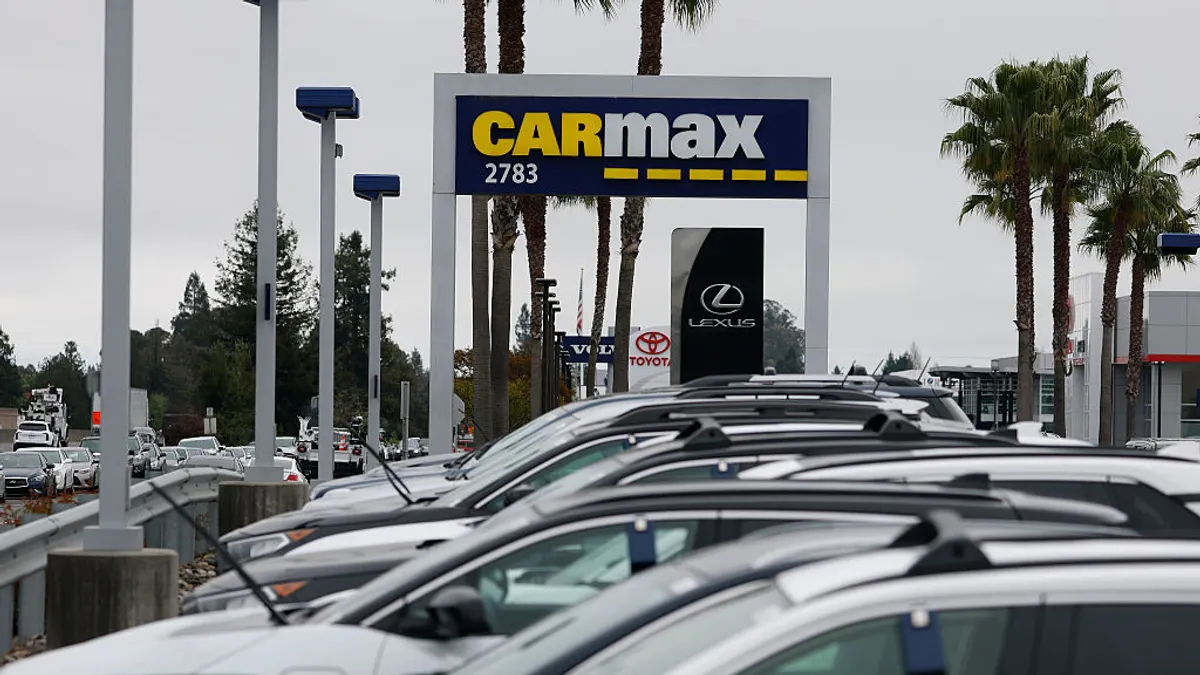As generative and agentic AI deployment pushes companies to improve governance, businesses are accelerating efforts around data management and accessibility. Auto retailer and financier CarMax got an early jump on the process when it began overhauling its data practices amid broader modernization efforts nearly a year ago.
The company had long relied on an on-premises platform for data warehousing that struggled to scale, leading to project delays and raising other concerns, according to Abhi Bhatt, VP of technology – data and AI at CarMax.
“When you’re trying to modernize, it’s not just one component: It’s the entire ecosystem,” Bhatt, who manages three teams, including one focused on customer experience, told CIO Dive. “It’s not just your data platform, it’s your data integration platform as well, it’s also your consumption platform and analytics and reporting … that’s how it became a full-blown modernization program.”

During the planning phase, executives rallied around three goals: increased data accessibility, better uptime and cost optimization where possible.
“The importance of data has always been here,” Bhatt said. “What’s transpired with everything from an AI perspective is this shift in mindset that it’s not just the structured data that we need to be thinking about.”
The leadership mindset shift was a fairly easy feat and felt like an extension of what the company had already prioritized, Bhatt said. But getting the technology in place to enable better data processes was more of a challenge.
Bhatt’s teams wanted to improve access and quality of the data sitting in SharePoint, Word and policy documents.
“All of that really needs to be pristine,” Bhatt said. “It has to have the same governing principles of stewardship, retention and monitoring so that you can leverage generative AI.”
Businesses across industries want to avoid the effects of poor data management. Persistent data woes are leading to decreased trust in AI outputs, project delays and increased costs, according to a Semarchy survey of enterprise decision-makers. In need of remediation, fewer than half of business leaders surveyed said they could reach their AI goals this year.
CarMax tapped Snowflake to migrate data pipelines and business intelligence reports to the cloud. Snowflake subject matter experts helped train engineers and end users on how to effectively use the tools. The company also supplemented the engineering team with assistance from a consulting partner to ease change management.
After the migration, CarMax continued to host training sessions when necessary and designated “champions” within different domains to educate others and further mitigate adoption concerns.
“Once you have the right platform, and you have the data in it, that’s when it becomes easier for us to then start thinking about data quality, data governance and the next step of this evolution,” Bhatt said.
The AI pursuit
Car companies have revved up AI efforts in recent months while facing economic uncertainty tied to tariffs. Carmakers Ford, General Motors and Toyota are pursuing use cases that have the potential to optimize costs and enhance customer experience.
Online auto retailers like Carvana are leaning into the technology, too.
Despite implementing traditional AI and machine learning technologies for the past decade, CarMax more recently paved the way for generative AI adoption through data modernization efforts.
"CarMax is leveraging generative AI across various use cases with differing levels of maturity,” Bhatt said.
Two key initiatives are enhancing access to its knowledge base and boosting productivity via Microsoft’s 365 Copilot and AI coding assistants.
Bhatt said platform fragmentation could become a potential disruptor to data accessibility and management. The company is already working to combat this by consolidating on as few platforms as possible. CarMax also plans to mature its practices around unstructured data to mitigate stewardship challenges.
“I don’t end a day without bringing up the importance of data and data quality for AI,” Bhatt said.















